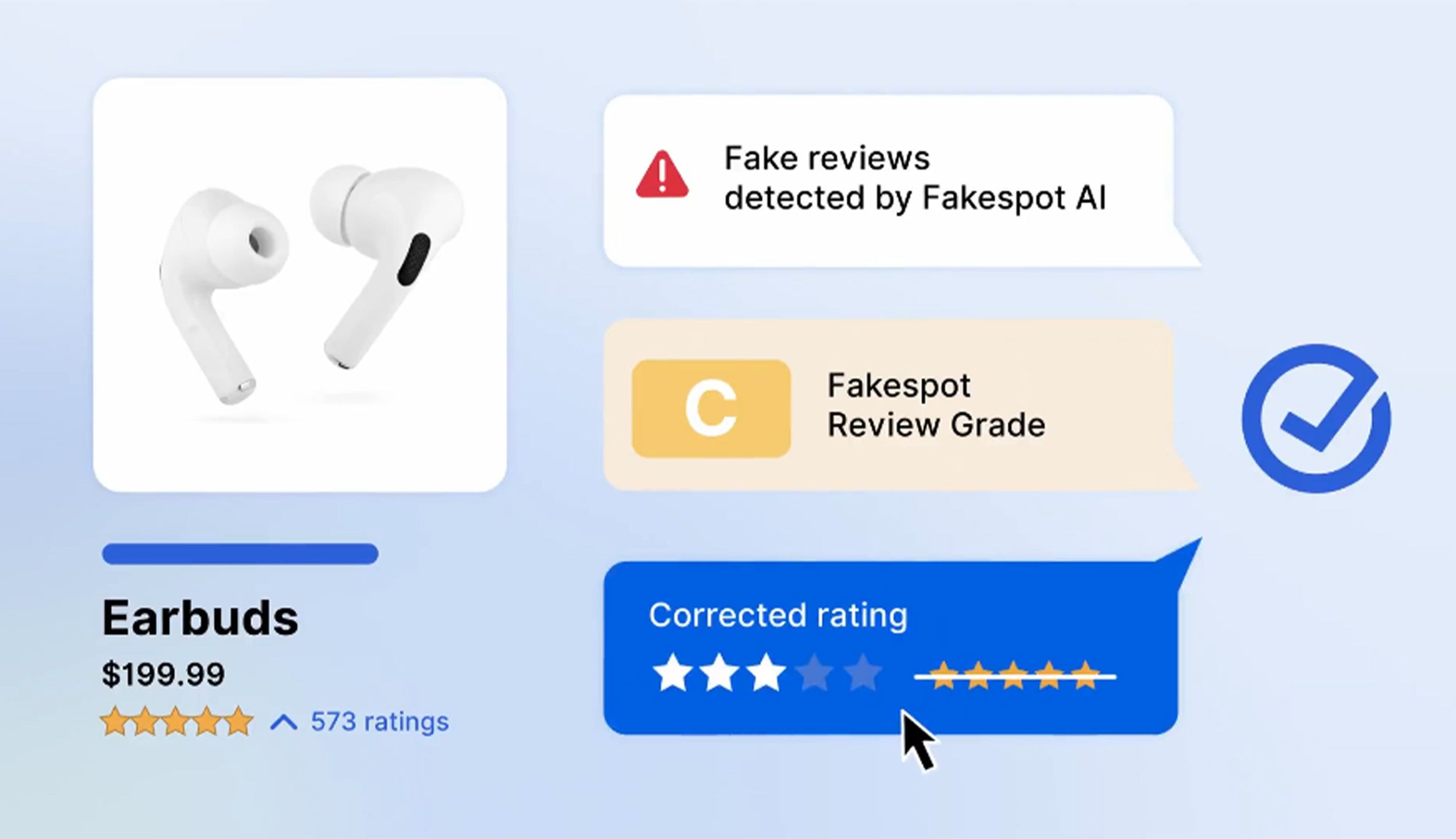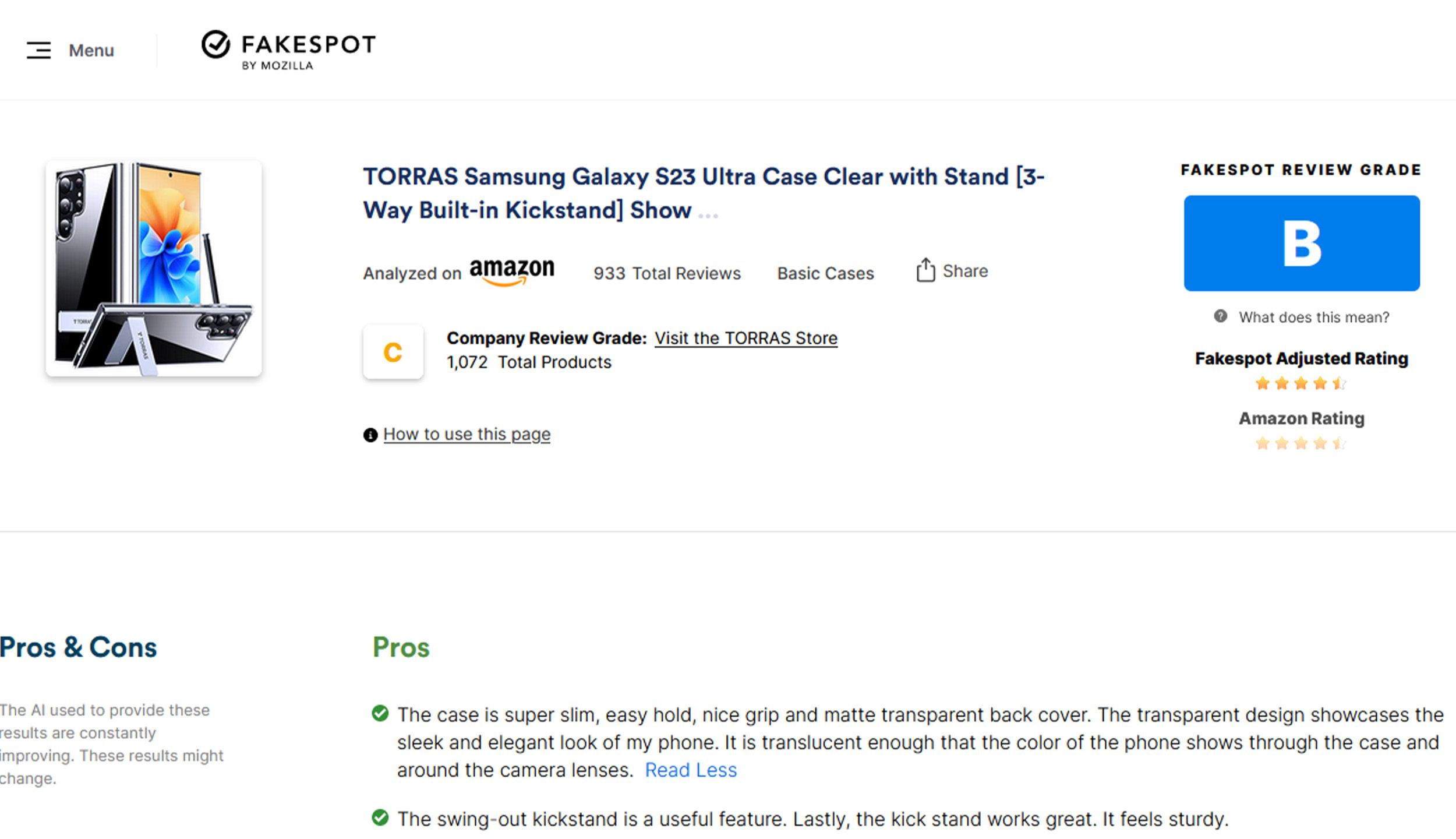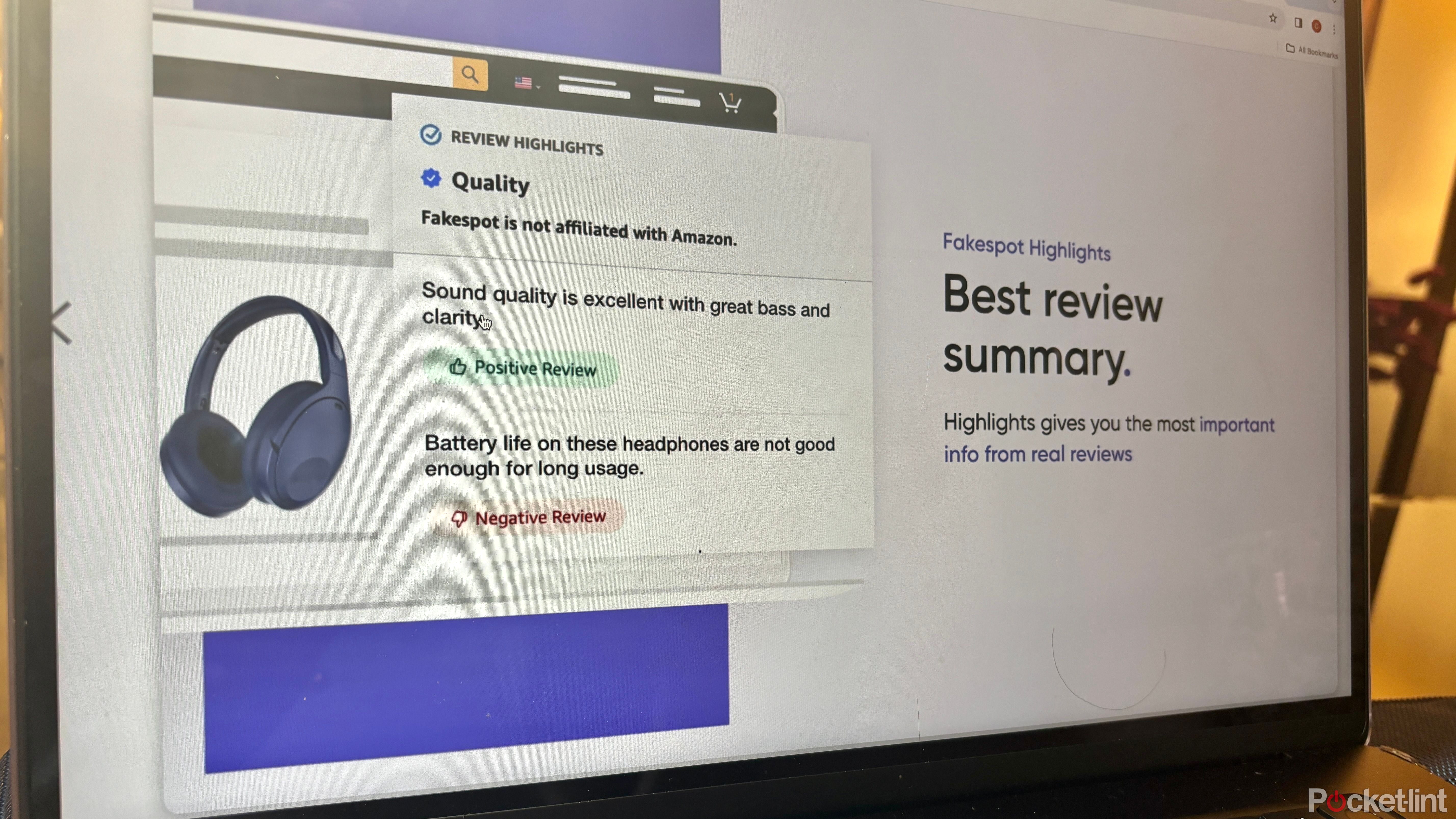Key Takeaways
- Online shopping has made it easier to find products, but harder to spot fake ones due to social media influencers, fake reviews, and copycat products. Online reviews can help, but no site covers every product.
- Fakespot is an online tool that detects fake reviews and reduces misinformation. It gives products a grade from A to F based on the legitimacy of consumer reviews. It can be used on the Fakespot website or through browser extensions.
- Fakespot provides detailed analysis of product reviews, including pros and cons, highlights, and an overview. However, a poor Fakespot score does not necessarily mean the product itself is bad. Companies can manipulate reviews. Fakespot is a tool to help interpret data and should be used alongside other reliable sources.
Shopping on the Internet is easier than ever with a plethora of e-commerce outlets like Amazon and social media even integrating shopping extensions. However, it’s also harder than it’s ever been to spot fake products. Between social media influencers’ strong verbiage when describing relatively mundane devices, fake reviews making Amazon products look way higher quality, and the plethora of copycat products out there, it can be difficult to discern which ones are good. Online reviews can help, but there are so many and no site covers every product.
How to use Beni, the sustainable and wallet-friendly shopping extension
Window(s) shopping just got better. Reduce your spending and carbon footprint this holiday season with the help of Beni browser extension.
That said, I like to use Fakespot, which is an online tool that can tell you if consumer reviews about a product are likely to be fake or real. This is especially helpful on Amazon, where fake reviews are commonplace. While it can’t tell you if a product is good or bad, at least it can remove one of the variables. Here’s more about Fakespot and how it works.
Fakespot
What is Fakespot?
Fakespot is an online tool that boasts the ability to weed out scams, fake reviews, and reduce the impact of misinformation in consumer product reviews. It’s run by Mozilla, the same company that develops Firefox browser. It was founded in 2016 and purchased by Mozilla in 2023. In addition to the official website, the service offers browser extensions for both Firefox, Google Chrome, and Chromium-based browsers like Microsoft Edge.

What is Galaxy AI? Samsung’s generative AI features explained
All the attention is on generative AI and the major brands that have yet to jump into the pool. Apple is one of them, but what about Samsung?
At its core, it uses AI and machine learning to detect patterns in reviews that may qualify them as fake. Fakespot then gives the entire product a grade from A to F.
Products graded with an A or B mean the consumer reviews are mostly legitimate and there’s a low chance of running into a fake review. Consequently, D and F scores mean most of the reviews are likely faked.
How to use Fakespot
There are two main ways to use Fakespot. We’ll briefly go through both of them.
First option: Using the official website
- Head to Fakespot’s official website.
- Open the sidebar menu and select Fakespot Analyzer.
- Paste the link to the product you want to check out and hit the Analyze button.
- Wait for Fakespot to do its thing.
- Check out the grade and other information.
Second option: Using FakeSpot’s extension
While there are extensions for multiple browsers, they work the same regardless of the browser you use.
- Download and install the Fakespot extension from your browser’s extension store.
- There is a brief setup process. Click through the quick tutorial.
- Go to any supported product page.
- Click to open the extension and tap Analyze This Page.
- Fakespot will open a new browser tab with the grade and other information.
How to interpret Fakespot’s results
Fakespot gives you quite a lot of information. Fortunately, it’s broken down into five total sections.
Get the grade early
The first section shows you the product, the link to the product page, and the aforementioned letter grade. In addition, there is a Fakespot Adjusted Rating that guesses what the rating might be if the false reviews were removed, but that feature is a bit hit or miss.
A smart way to find pros and cons
The second section details the product’s pros and cons. The AI model analyzes the page and also groups together what people most often said they liked and disliked about the product in question. Amazon does something similar to this now with its own AI, although Amazon doesn’t filter out fake reviews first.
Highlight reel
Next is the Highlights section, which is similar to the Pros & Cons section. It takes the keywords it finds most often and puts them into easy-to-read lists. Thus, if a lot of people say they like the sound quality of a pair of earbuds, the Highlights section will mention sound quality as a highlight.
A smart summary
Fourth is the Overview section. This is where you see additional details about Fakespot’s analysis. Notably, this is where the website gives you a guesstimate of how many of the reviews it believes are real, how much deception was used, how many reviews the product has in total, and some keywords that real reviewers often use to describe the product.
A beta version of further analysis
The final section is Helpful Insights, which at the time of writing, is in beta testing. This shows some bits of reviews that the AI thinks will be helpful in your search. Additionally, it houses a graph of the number of reviews over time as well as a price history graph.
Does a poor Fakespot score mean a product is bad?
No, and Fakespot makes it a point to say this multiple times on their website. All Fakespot does is review the reviews, not the product itself. Let’s look at an example. In the above image, you can see the Torras Strong stand case for the Samsung Galaxy S24 Ultra has an F rating, meaning that there is a high level of deception involved.

Best Samsung Galaxy S24+ cases
You may have to wait to get your new Galaxy S24+, but you can buy a protective case right now.
As I’m writing this article, all the reviews have been posted between Jan. 19 and Jan. 23. No one who posted a review for this product has the S24 Ultra yet, as even the earliest pre-orders are set to arrive on Jan. 26. How does anyone know how durable the kickstand is over the long-term or how much protection the case offers if no one’s even put a phone in it yet?
Fakespot
As an owner of the previous generation Torras case for the Galaxy S23 Ultra, I know that, so far, the only notable difference between the cases is that my S23 iteration doesn’t have a MagSafe magnet. Its review score is a B, as noted in the image above. The case is pretty nice. I’ve had mine as long as I’ve owned my S23 Ultra and I can attest that it is, in fact, a good product.
The point is that unreliable or fake review scores are only one part of the equation. Companies can release perfectly good products and also put up fake (or early) reviews. Approximately one-third of all shoppers won’t buy a product with no reviews. It’s also been shown that positive reviews increase sales and that even one review can increase the likelihood of a sale. Fake reviews are a marketing tactic, albeit a fairly scummy one.
How is Fakespot useful?
Fakespot is ultimately a tool that compiles and presents data. Like any such tool, it’s all about correctly interpreting that data. If you look at a product that has an A or a B rating, then you can assume that it’s safe to go to that product page and read through the customer reviews to help you make your purchasing decision. You are, after all, reading real reviews from real people most of the time.
For products that have a C, D, or F rating, it’s low-hanging fruit to say that the reviews aren’t reliable or that the data isn’t useful. It’s much more productive to view such reviews as decorative, like a showroom floor of sorts. Those reviews are what the company wants you to see, which can still be useful in some cases. Of course, you’ll want to corroborate anything you see with professional online reviews, Reddit, and other, more trustworthy outlets.
What websites are compatible with Fakespot?
The following websites work with Fakespot:
- Amazon
- Best Buy
- eBay
- Sephora
- Shopify
- Walmart
Trending Products

Cooler Master MasterBox Q300L Micro-ATX Tower with Magnetic Design Dust Filter, Transparent Acrylic Side Panel…

ASUS TUF Gaming GT301 ZAKU II Edition ATX mid-Tower Compact case with Tempered Glass Side Panel, Honeycomb Front Panel…

ASUS TUF Gaming GT501 Mid-Tower Computer Case for up to EATX Motherboards with USB 3.0 Front Panel Cases GT501/GRY/WITH…

be quiet! Pure Base 500DX Black, Mid Tower ATX case, ARGB, 3 pre-installed Pure Wings 2, BGW37, tempered glass window

ASUS ROG Strix Helios GX601 White Edition RGB Mid-Tower Computer Case for ATX/EATX Motherboards with tempered glass…













